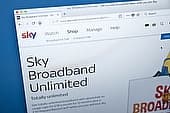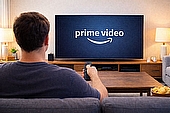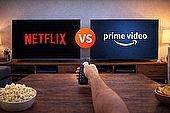Home > TV & Broadband > News > Few opt in to use ISP parental controls
Few opt in to use ISP parental controls
FEW households are choosing to activate network level parental controls when they sign up with a broadband provider, research from Ofcom has revealed.

Conservative ministers including David Cameron have strongly advocated encouraging parents to take up blocking software by making it an unavoidable or 'active' choice.
But that strategy doesn't seem to be all that effective.
Here's the proportion of new customers who opt in and use parental controls across the big four broadband providers:
| BT | Sky | TalkTalk | Virgin Media |
|---|---|---|---|
| 5% | 9% | 36% | 4% |
The number of households using parental controls is far higher than these low percentages suggest: Ofcom research released in January found that 22% of households with children under 15 use ISP parental controls and far more, 42%, use some other kind of parental controls.
Disappointing results for active choice
Nevertheless, these low sign up rates are disappointing for advocates of parental controls.
In a key 2013 speech at an NSPCC event, Cameron clearly expected the firm nudge of active choice for new customers to lead to really high take up.
"By the end of this year, when someone sets up a new broadband account, the settings to install family friendly filters will be automatically selected... But of course, all this only deals with the flow of new customers, new broadband accounts, those switching service providers or buying an internet connection for the first time," Cameron said.
"It doesn't deal with the huge stock of the existing customers, almost 19 million households, so that is where we now need to set our sights."
2012 Ofcom research found that most parents adopted controls after they were prompted to install them after purchase or sign up.
Apparently new customers weren't as easily moved as that research suggests or perhaps households with young children only make up a small proportion of homes changing their broadband provider.
Take up still increasing
Whatever the reason for disappointing take up among new customers, it is worth noting that take up is increasing overall and may continue to do so as awareness raising efforts like the Internet Matters site, which launched in May, kick into higher gear.
Virgin Media say 87% of customers signing up for their parental controls aren't new customers, for example, but existing customers specifically seeking out controls.
Sky also told Ofcom that they had seen more existing customers than new customers take up their Sky Shield filtering service.
It's also notable that TalkTalk, which has offered parental controls since 2011, sees much higher take up even among new customers, which could suggest that the other ISPs just need to make their products as attractive as TalkTalk's highly regarded HomeSafe software.
Even with these explanations, however, many looking at these new figures will find it harder to take seriously claims that ISP parental controls are fundamentally damaging free speech or the commercial interests of websites.
Low take up, low danger?
The Open Rights Group has made those claims particularly vociferously: opposing widespread parental controls from the start; raising £6,500 to study the impact of the software and highlighting specific cases of over blocking, like the Order Order blog.
Doesn't low take up of parental controls undermine the argument that they're a threat?
Jim Killock, Executive Director of Open Rights Group told us that's a misconception.
"Although there is a low take up of filters, their impact will still be felt by small businesses and bloggers as well as young people who are trying to find important information about drugs, alcohol or sexual health problems," he told us.
"It should also be noted that there are default filters on mobile phones and public wi-fi so [parental controls'] reach is pervasive. This is why it's important that people are aware both about the limitations of filters in protecting their children and the problem of over blocking of sites that are not harmful.".
Get insider tips and the latest offers in our newsletter

We are independent of all of the products and services we compare.

We order our comparison tables by price or feature and never by referral revenue.

We donate at least 5% of our profits to charity, and we aim to be climate positive.
Latest News

8 February 2026
TV licence to rise to £180 from April 2026
5 February 2026
Sky confirms April 2026 price rises for broadband and TVGet insider tips and the latest offers in our newsletter



